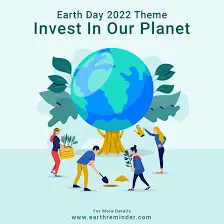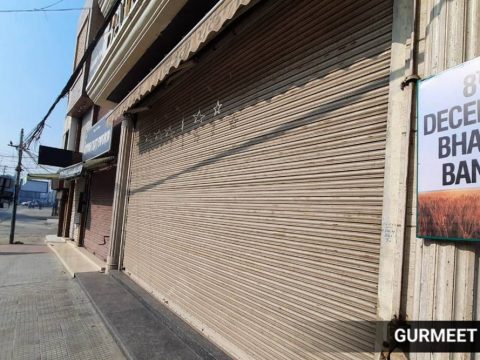
INDIA GREENS PARTY
(Registered with the Election Commission of India under Section 29A of the Representation of the People Act, 1951. Registration Number: 56/476/2018-19/PPS-I, effective from 18/07/2019.)
Party HQ: 104, Vardhman Complex, 1st Floor, LSC, Savita Vihar, Delhi-110092.
Email: indiagreensparty@gmail.com Website: www.india-greens.org
Press Statement
IGP objects to stipulated time-frame for finalising EIA-2020 draft of Environment Ministry
New Delhi, 19 April 2020: The India Greens Party (IGP) has objected to the stipulated time-frame for finalising the Environment Impact Assessment-2020 draft of the Ministry of Environment, Forest and Climate Change (MoEFCC) and its subsequent enforcement, in the light of COVID-19 pandemic in the country.
“The IGP demands that a fresh draft be put in public domain that too after the lockdown is totally over,” demanded the IGP President Suresh Nautiyal in a press statement issued in New Delhi.
The (MoEFCC) had put the draft of new rules EIA-2020 in public domain asking if any person was interested to make objections or suggestions on the proposal contained in the draft notification. The objections or suggestions are to be sent to the ministry within 60 days from 12 March 2020. Accordingly, the IGP has filed the objections/suggestions to the said draft.
“Instead of focusing on ensuring the protection of the environment, the draft EIA-2020 undermines the orders of the NGT which had ruled against post-facto approvals,” he pointed out, adding that the purpose of the notification is to legitimise illegalities done by industries.
“It is, in fact, an attempt to skirt around all the major decisions of the National Green Tribunal (NGT) over the past few years,” pointed out Mr Nautiyal in an email communication to the MoEFCC Secretary.
He said the draft is just investor friendly. “This is evident from the extension of the time given for submitting a compliance report throughout the term of the project,” he added.
Mr Nautiyal said the earlier notification required that the project proponent submit a report every six months, showing that they are carrying out their activities as per the terms on which permission has been given. However, the new notification requires the promoter to submit a report only once every year. During this period, certain irreversible environmental, social or health consequences of the project could go unnoticed because of the extended reporting time.
The IGP President said that the draft has not even reached many of the stakeholders and to the people likely to be affected by the new set of rules and people at large, due to the countrywide lockdown.
“It seems to be emphasising that an industrial project that has violated environmental rules will have a right to seek approval for it as long as that project is permissible in the area. It is a mockery of the law,” regretted the pan-India Green party leader.
He said the party objects to the manner in which the draft deals with environmental violations by various industries.
“Cases of violation mean instances where projects either started the construction work or installation or excavation or expanded the production or project area without prior environment clearance,” Mr Nautiyal stated.
In March 2017, the national government had come out with a notification that provided industrial projects with a chance to regularise projects that started construction or undertook expansion and modernisation without prior environment clearance.
“Unfortunately, the draft EIA-2020 goes a step further as it institutionalises this fait accompli situation. For example, the draft EIA-2020 notes that such violations being recurring in nature may come to the notice in future during the process of appraisal or monitoring or inspection by regulatory authorities.”
The IGP also opposes the weakening of the public consultation process, which the draft EIA-2020 proposes as in the environment clearance process, public consultation is an important component under which the concerns of local affected persons and others, who have a stake in the environmental impact of the project, are ascertained with a view to appropriately take into account while designing the project.
In the latest draft, the MoEFCC proposes to expand the list of projects that do not need to seek public consultation before they seek environment clearance.
The draft says public consultation is exempted for projects including modernisation of irrigation projects, all building, construction and area development projects, inland waterways, expansion or widening of national highways, all projects concerning national defence and security or involving “other strategic considerations” as determined by the central government, all linear projects like pipelines in border areas and all the off-shore projects located beyond the 12 nautical miles.
It also holds that “all projects concerning national defence and security or involving other strategic considerations, as determined by the central government, shall require prior-environment clearance, from the ministry without any change in the category of the project but “no information relating to such projects shall be placed in the public domain.”
The party has pointed out that if adequate time is not given for the preparation of views, comments and suggestions to those who would be affected by the project, then such public hearings would not be meaningful as noted by the High Court in the Samarth Trust Case.
“Unless a public hearing is meaningful, the whole EIA process would lack transparency and credibility,” said Mr Nautiyal, adding that discourse and participation must remain vital elements of environmental decision-making processes.
– Press Statement issued by Santosh Shintre, General Secretary, IGP.





You must be logged in to post a comment.